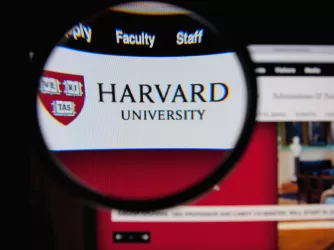Table of Contents
Open-Government Organizations Support Student Journalists’ Use of Sunshine Law Against UCF

CREDIT (Jillian Cain Photography/Shutterstock, Inc.)
The University of Central Florida’s student newspaper Knight News received a flood of support in its ongoing legal battle to shed light on how UCF, a public school, spends taxpayer money. After Knight News took UCF to court over the school’s use of a student privacy law to block journalists from accessing newsworthy information, several open-government organizations filed an amicus (“friend of the court”) brief backing the student newspaper’s drive to expose waste and corruption at UCF.
In a brief that blasts UCF for interpreting the Family Educational Rights and Privacy Act in a way that defies the law, logic, and common sense, the Student Press Law Center joined several other organizations in arguing that UCF cannot hide behind FERPA to refuse requests under Florida’s open records law. UCF claimed that FERPA, a federal law requiring federally funded schools to ensure the privacy of certain student records, allows the university to refuse requests for documents detailing how much money student government officials were reimbursed for travel and business expenses. Such documents are sought after by journalists because they have formed the basis of investigations into misconduct and fraud at other schools, as described in the brief. Journalists have frequently targeted these documents under open records laws, commonly referred to as sunshine laws because they shine light on government institutions.
Knight News requested these documents to report on how UCF is spending the public’s money. UCF cited FERPA in refusing the request and Knight News responded with a lawsuit. One successful ruling later, UCF is now trying to block the request on appeal.
In the amicus brief supporting Knight News, a majority point of contention is UCF’s egregious FERPA interpretation. FERPA generally prohibits the university from disclosing private student records. It doesn’t apply to records that are already public or records that students consent to disclose. According to the brief, FERPA also doesn’t apply to records that “are debated openly in student government meetings to which the public is invited,” such as the those requested by Knight News. Although the records do mention student names, the brief explains that “[c]ourts have been forced regularly to remind educational institutions that not every mention of a student’s name transforms a document into a confidential ‘education record.’” This is precisely the ruling of the lower court, which, according to the brief, “correctly recognized that ‘student privacy’ was never intended to, and cannot be expanded to, obscure the public’s ability to oversee a government agency in which students have voluntarily undertaken positions of prominence and responsibility.”
Unfortunately, this is not the first time FIRE has seen schools abuse FERPA to serve their own ends. Schools routinely cry “FERPA” when faced with requests for unflattering records, such as those depicting athletic scandals, fraternity hazing, and even a student’s death. This isn’t even the first time Knight News has taken UCF to court over its use of FERPA to thwart requests under the sunshine law.
We sincerely hope the Florida appellate court’s decision illuminates these abuses for all to see. After all, according to Justice Louis Brandeis, “Sunlight is said to be the best of disinfectants.”
Recent Articles
FIRE’s award-winning Newsdesk covers the free speech news you need to stay informed.

‘I hate freedom of opinion’ meme leads to sentencing in German court

Revoking Harvard’s tax-exempt status will threaten all nonprofits

Grandpa’s advice for the new wave of American censors
